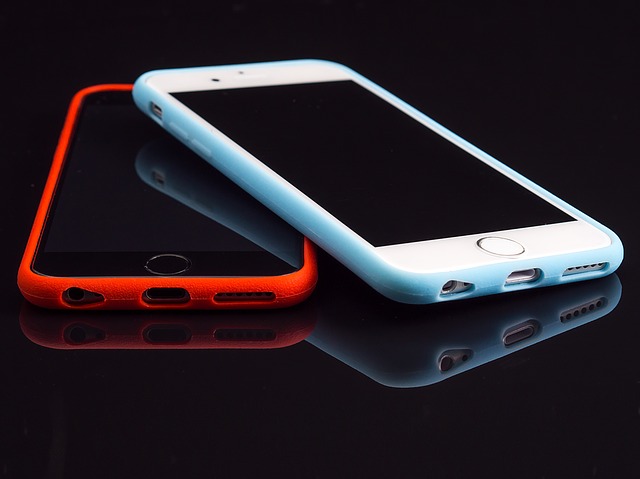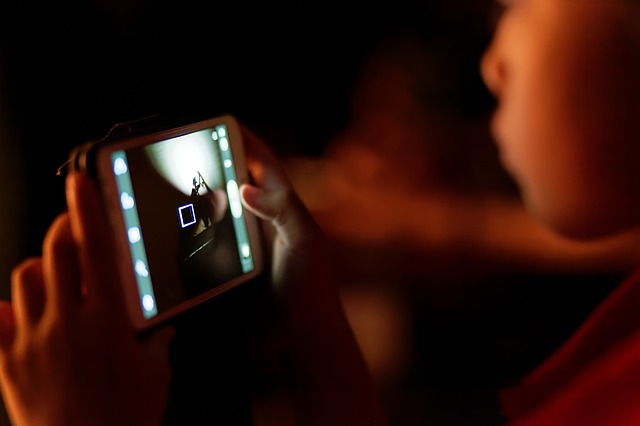Autism and Screen Time: How Much is Too Much?
Many parents are concerned that autism and screen time are not a good mix. If this is true, then how much is too much?
Here we explore what the experts have to say so we can make informed decisions for our children.
Can Autism and Screen Time Be a Good Thing?

The biggest advantage I know of these devices is kids love to play with them.
My son almost always chose to work on the iPad when given the choice during speech therapy.
Every therapist I spoke with said an iPad was always more attractive to kids than traditional therapy tools. An iPad not only held their attention more, but therapists could also use the iPad as a motivating reward for good work. It certainly was an effective reward for my son.
So if mobile devices are so popular with kids, should we hand our kids an iPad whenever they're bored or whenever we need something to keep them occupied?
What could possibly be wrong with the latest in technology?
The answer is... plenty.
Disadvantages of Technology

It turns out that autism and screen time may not be such a great match, even if the purpose is for therapy.
Cris Rowan, an occupational therapist, child development expert and founder of Zone’In Inc. goes so far as to say these devices should be banned from children 12 and under.
According to her article on the negative effects of screen time, these electronic tools have been shown to cause cognitive delays, attention deficit, increased impulsivity and other negative effects on brain functioning.
They also decrease movement because kids are sitting around more while they play with their devices. This causes more delay in development. Movement is proven to increase attention to tasks and the ability to learn.
Rowan also states that the increasing use of electronic devices has been proven to cause sleep deprivation.
Dr. David Eifrig, Jr., MD, says electronic devices “emit electromagnetic radiation that disturbs sleep cycles” (Eifrig, 2014).
While he doesn’t mention the negative effects of electronic devices on children in general, he does recommend relaxing for a while without them before going to bed for the night, a practice that would be useful for adults.
Cris Rowan and Dr. Eifrig’s reports reinforce what we have experienced in our own family.
One member of my family says too much time spent on the computer “...causes my thoughts to become disorganized. It seems to affect my digestion as well. I feel like it zaps my brain and leaves me in disrepair. Motor planning skills seem be affected.
"It’s harder for me to perform normal tasks because if my brain is disorganized then it’s harder to organize my life and to think, ‘Okay, I need to do this and then this and then this.’ Most if not all of my would-be plans get scattered into disarray because my brain is in disarray.”
The longer the time and the larger the screen, the worse the effect for him seems to be. A large laptop would cause greater problems than an iPhone. My smaller laptop seems to have less of an effect than his larger one.
So the effect can be worse with a larger screen such as one from a laptop or from a large-screen TV. Now I know what my parents were talking about years ago when they told me not to sit too close to the TV.

What Does This Mean For Us Parents?
After learning about the negative effects of autism and screen time, I certainly don’t want to hand my son the iPad and let him play for hours.
If he doesn’t ask for it, I'm not going to offer it to him. And he rarely asks for it.
But Ms. Rowan's call to ban the devices from children age 12 and under seems a bit extreme to me, especially in our day and age of devices all around us.
My thoughts? Everything in moderation. You may want to keep your child’s time on the devices to a bare minimum. It may seem like quite a sacrifice, but in the end, we all want what is best for our kids.
If your child really loves the iPad, you could make small amounts of time spent on it a reward reserved only for very special accomplishments.
Whatever and however you decide to handle this issue in your family is ultimately up to you as the parent.
I find with my younger son that if something is out of sight it’s “out of mind.” While he’s sleeping, if I need something to disappear, I make it disappear. He may notice the disappearance when he first wakes up, but he soon forgets all about it.
A bit of distraction may be all they need to help them forget. You may find it effective to replace the devices with other favorite things.
Change Amount of Time Spent on Devices With Care
With that said, some experts believe reducing or eliminating screen time should be done very carefully to avoid the increase of problem behaviors.
Dr. Mary Barbera, a Board Certified Behavior Analyst (BCBA), offers her perspective in the following video:
While we should carefully control autism and screen time, each child is different and each situation is different.
While weighing all the factors in our own child's case, we should seek to balance needs with risks and perhaps work toward reducing screen time whenever and however it's right for each child.
Eifrig, David. (2014, August). Three reasons you're not sleeping well this summer. Retirement Millionaire, pp. 9-12.
Related Articles
1. Teaching Strategies for Autism: Tools For Effective Learning
2. Teaching Reading to Your Child
4. Finding Books For Children While On a Budget



New! Comments
Have your say about what you just read! Leave me a comment in the box below.